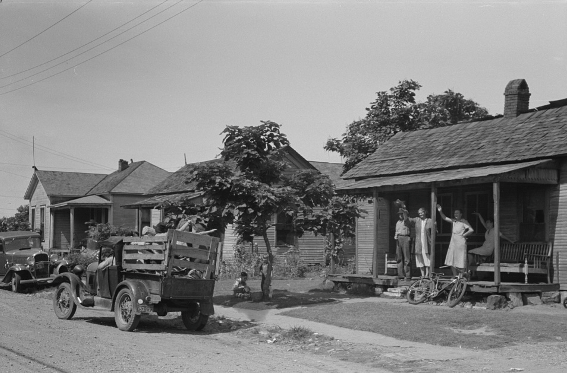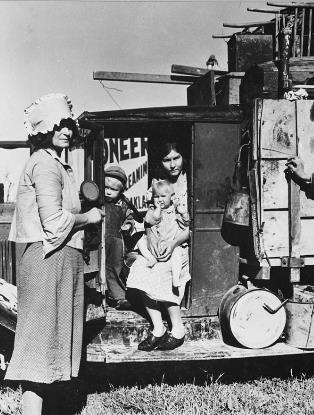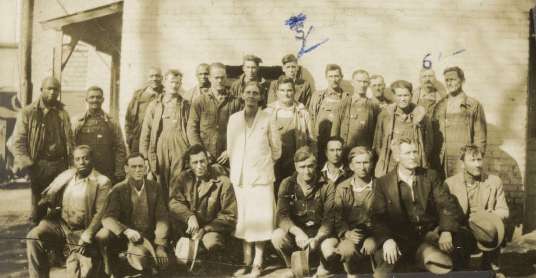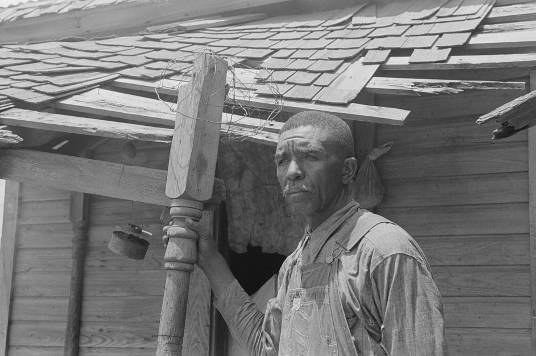
Tenant Farming in Oklahoma
The Decline of Farm Unions
Oklahoma’s poorest tenants felt that they were out of options. They had suffered through an unstable market, been pushed off their farms, and advocated all they could, yet, they had nothing to show for it. Their only choice was to move to where the jobs were, often westward to California. There, they became migrant farmers, even more mobile and placeless than they had been in Oklahoma. Tenancy in Oklahoma was not so much overcome as it was rendered obsolete.
Small farm owners didn’t have it much better, as a new agricultural model emerged—that of the agribusiness. These family farmers couldn’t afford the new technologies employed by large-scale farming corporations, pushing them out of the market in much the same way as the tenant.

Friends waving goodbye to an Oklahoma family departing for California (image courtesy of the Library of Congress).

Oklahoma migrant family looking for agricultural work in California (image courtesy of the Library of Congress).
As tenant farming disappeared, so, too, did the tenant unions. They simply lacked a base to draw from, as all their members flocked west or to the cities. Some broader organizations were able to stay afloat, such as the Farmers’ Unions, which remains in operation today. However, these organizations no longer play as large of a political and social role as they once did. As awareness of unions and labor activism dwindles, people lose a blueprint for creating change in their industries and in their lives. Although the economic and social landscape has changed, one can still look to the farm labor activist of the past to see the power and potential of community activism and cooperative action.

Delegates of the first Southern Tenant Farmers’ Union convention (image courtesy of University of North Carolina Libraries).
Though they succeeded in getting Walton elected, he proved unpopular with the state legislature and was eventually impeached. Still, in his short time in office, he passed several laws benefiting farmers, supporting cooperatives, and establishing state agricultural warehouses, in addition to a campaign seeking to expose and eradicate the Klu Klux Klan in the state. Unfortunately, Walton’s impeachment and the conflict between the different groups it encompassed caused the Farmer-Labor Reconstruction League to crumble.

Oklahoma tenant farmer looking out from his nearly-collapsed porch (image courtesy of the Library of Congress).

